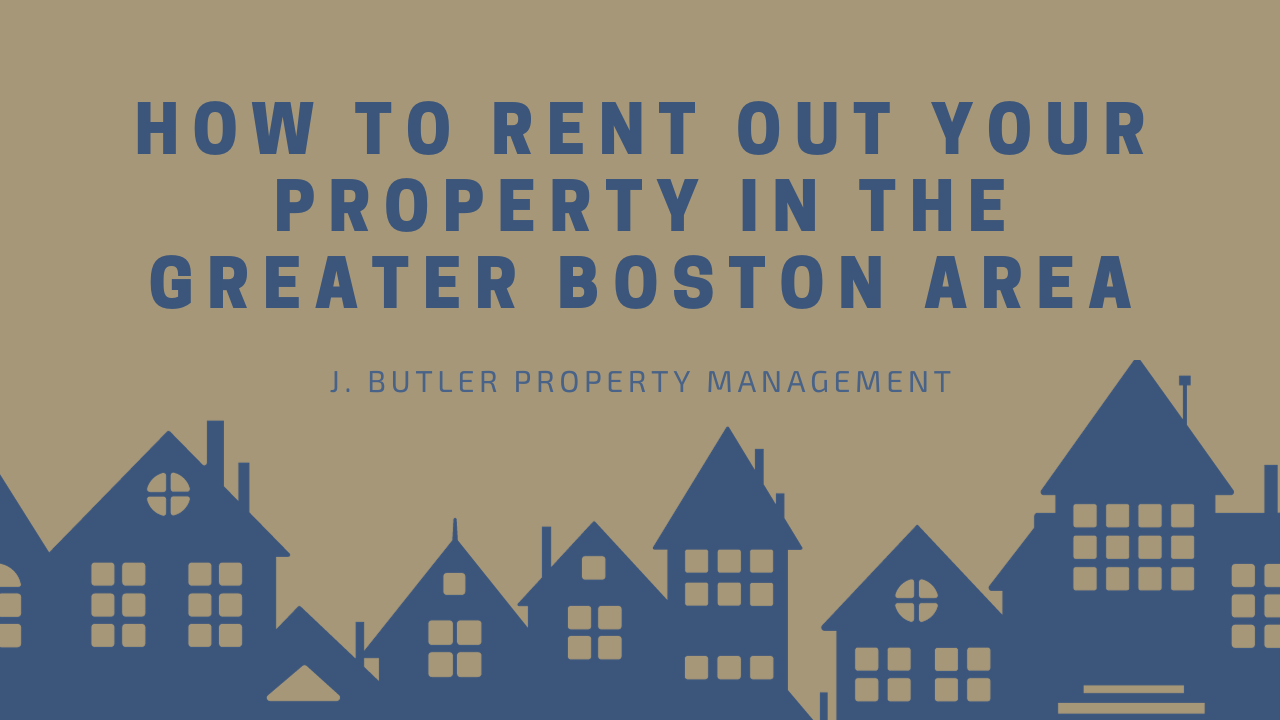
How to Rent Out Your Property in the Greater Boston Area
October 30, 2023
How to Rent Out Your Property in the Greater Boston Area
Renting out your property in the Greater Boston area can be a lucrative venture, but it’s not without its challenges. To be successful, you need to come prepared. It’s crucial for landlords to know what factors to consider before venturing into Boston rental properties.
In this comprehensive guide, we will explore the essential steps to successfully rent your property in the Greater Boston area, providing valuable insights and tips for prospective landlords.
1. Know the Laws
Before delving into rental property investing, it’s imperative to familiarize yourself with the Massachusetts landlord-tenant laws. These laws are in place to protect both landlords and tenants, ensuring a fair and balanced relationship. Here are a few significant landlord-tenant laws that you should be aware of:
Security Deposits: Massachusetts law requires landlords to maintain security deposits in a separate, interest-bearing bank account linked to the social security number of your tenant. You can only deduct specific costs from the deposit, such as unpaid rent, damage beyond normal wear and tear, or unpaid utilities. The security deposit amount should also not exceed one month’s rent.
Evictions: Massachusetts has strict regulations governing eviction procedures. You can’t force a tenant out without a court order, and the process can be lengthy. It’s essential to understand the legal requirements, grounds for eviction, amount of notice required, and deadlines associated with eviction cases.

Maintenance and Repairs: As a landlord, you are responsible for maintaining the property in good condition. Failure to make necessary repairs could lead to legal issues and fines.
Housing Discrimination: On top of the federally protected classes under the Fair Housing Act, Massachusetts provides additional protection to individuals based on income source, marital status, military status, sexual orientation, gender identity, age, or genetic information.
2. Know Your Responsibilities as a Landlord
Understanding your responsibilities as a landlord is fundamental to a successful rental experience. These responsibilities include maintaining the property, addressing tenant concerns, and ensuring that the living environment is safe and habitable.
3. Study the Market
Before setting your rental rates, take the time to study the local real estate market. Analyze comparable local rental properties to determine a competitive and fair rental price. Knowing the market conditions will help you attract quality tenants while maximizing your rental income.
4. Stage Your Property
Before you put your property up for rent, be sure it’s in good shape. This includes making any necessary repairs, cleaning, and ensuring all appliances and systems are in working order. A well-maintained property is more likely to attract responsible tenants.
5. Set a Budget
Rental property ownership comes with expenses beyond the mortgage. You’ll need to budget for property taxes, insurance, maintenance, and potential vacancies.

Creating a comprehensive budget will help you understand the financial aspects of being a landlord and ensure you are financially prepared for any unforeseen expenses.
6. Hire a Property Manager
One of the most significant decisions you’ll face as a landlord is whether to hire a property manager. Property management can be a demanding job, and hiring a professional property manager can help ensure your investment is well-maintained and profitable.
Here are some tips and considerations for deciding whether to hire a property manager:
Assess Your Availability: Consider your availability and willingness to commit the time and effort required for property management. If you have a busy schedule, live far from the rental property, or have multiple properties to manage, a property manager can be invaluable.
Experience and Expertise: Property managers are seasoned professionals with knowledge of local real estate markets and regulations. They can help you navigate the complex landlord-tenant laws in Massachusetts and provide insights on setting appropriate rent rates.
Tenant Selection and Screening: Property managers have established screening processes to find reliable and responsible tenants, reducing the risk of rental issues. They also have experience handling tenant issues and disputes.
Marketing and Advertising: Property managers are skilled at marketing and advertising your rental property. They can efficiently list vacancies, reach a broad audience, and quickly find suitable tenants.

Property Maintenance: Maintenance and repairs are often the most time-consuming aspect of property management. Property managers have a network of reliable contractors and can promptly address maintenance requests.
Legal Compliance: Property managers are well-versed in Massachusetts landlord-tenant laws and ensure that all legal requirements are met. This can help prevent costly legal disputes.
Rent Collection: Collecting rent and handling late payments can be stressful. Property managers have efficient rent collection processes and can address non-payment issues promptly.
Emergency Response: In case of emergencies, property managers can quickly respond and coordinate necessary repairs, providing peace of mind to both you and your tenants.
Cost Considerations: While property management services come at a cost, many landlords find that the convenience and expertise provided by property managers outweigh the fees. Be sure to factor these expenses into your financial planning.
Interview Potential Property Managers: When considering a property management company, interview multiple candidates, check references, and thoroughly review their contracts. Ensure that the management fee structure aligns with your budget.
Bottom Line
Renting your property in the Greater Boston area is a significant investment, and understanding what you’re getting yourself into is crucial before you make this decision. Knowing the Massachusetts landlord-tenant laws is paramount to your success.
From handling security deposits to eviction procedures, compliance with these laws is essential to a successful rental experience. Additionally, the decision to hire a property manager should be made after careful consideration of your availability, expertise, and budget.
By becoming well-informed about the laws and regulations governing landlord-tenant relationships and making a thoughtful decision regarding property management, you can set yourself up for success as a landlord in the Greater Boston area.
To ensure a lucrative rental business, make sure that you understand your responsibilities and have the right budget planning. Reliable property managers can help you lessen your load while taking your business to new heights. Get in touch with the experts at J. Butler Property Management today!


